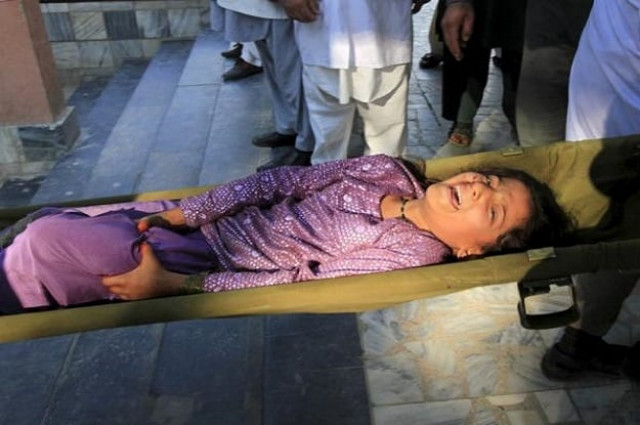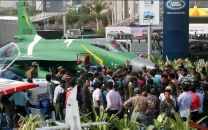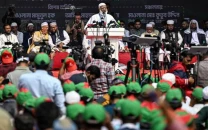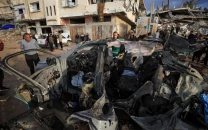Taliban urge rescuers "not to hold back" in Afghan quake relief effort
Afghan Taliban group orders its "mujahideen in affected areas to lend their complete help"

Rescue workers carry a girl who was injured after an earthquake, at a hospital in Jalalabad, Afghanistan on October 26, 2015. PHOTO: REUTERS
With harsh winter weather setting in across the rugged Hindu Kush mountains where the earthquake struck, the plight of thousands of people left homeless by the earthquake was becoming increasingly serious.
Dozens dead in northeast Afghanistan
"The Islamic Emirate calls on our good willed countrymen and charitable organisations to not hold back in providing shelter, food and medical supplies to the victims of this earthquake," the Taliban said in a message of condolence to quake victims, using their formal name. "And it similarly orders its mujahideen in the affected areas to lend their complete help."
However the relief effort is being complicated by unstable security caused by the Taliban insurgency, which has made large parts of the affected areas unsafe for international organisations and government troops.
"We have insufficient food and other aid," said Abdul Habib Sayed Khil, chief of police in Kunar, one of the worst-hit provinces, where 42 people were confirmed dead.
"It has been raining for four days and the weather is very cold. If we don’t provide aid very soon it may turn to another disaster."
Roads and communications were cut off to many areas at the epicentre of the earthquake and authorities and international relief organizations were still trying to assess the extent of the damage.
In Pakistan, where landslides and heavy rain and snow over the weekend had already left thousands of tourists stranded in mountainous areas of the north, the country's well-equipped military was heavily involved in the relief effort.
Death toll rises to 30 from US strike on Afghan hospital
Several helicopters had been dispatched to affected areas to assess damage and run rescue operations, the National Disaster Management Authority said.
"Rescue work is ongoing and tents, blankets and sleeping mats are being provided," Latif ur Rehman, a Pakistani disaster management official, told Reuters from the north-western city of Peshawar.
Authorities confirmed 228 deaths in Pakistan while in Afghanistan, the death toll had climbed to around 80. At least 4,000 houses and compounds had been destroyed or damaged, Afghan Chief Executive Abdullah Abdullah said. However, the death toll could climb in coming days as communications to cut-off areas are restored.
The earthquake struck almost exactly six months after Nepal suffered its worst quake on record on April 25. Including the toll from a major aftershock in May, 9,000 people lost their lives there and 900,000 homes were damaged or destroyed.
The initial magnitude 7.5 quake on Monday afternoon was followed by seven aftershocks, measuring as high as magnitude 4.8, according to the US Geological Survey. The latest aftershock came just before dawn on Tuesday. The quake was 213 km (132 miles) deep and centred 254 km (158 miles) northeast of Kabul.
The United Nations Office for the Coordination of Humanitarian Assistance (OCHA) said roads between the Afghan cities of Taloqan and Kunduz in the north and between Jalalabad in the east and the capital Kabul had been cut by landslides.
LIVE: Hundreds feared dead as earthquake jolts Pakistan, Afghanistan
The United States and Iran were among countries that offered to provide humanitarian assistance to Afghanistan, which already depends heavily on foreign aid after decades of war that have wrecked its economy and infrastructure.
In Washington, White House spokesman Josh Earnest said the US Agency for International Development was ready to provide emergency shelter and relief supply kits.



















COMMENTS
Comments are moderated and generally will be posted if they are on-topic and not abusive.
For more information, please see our Comments FAQ